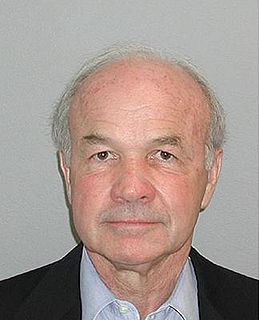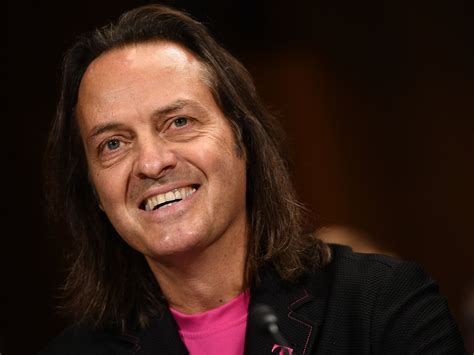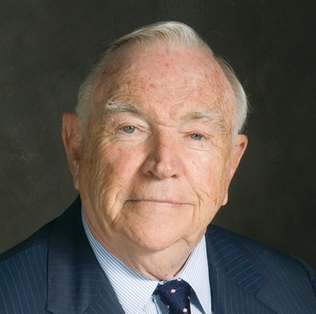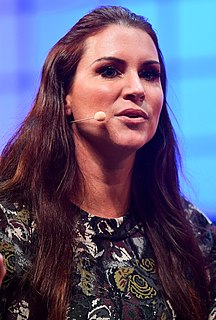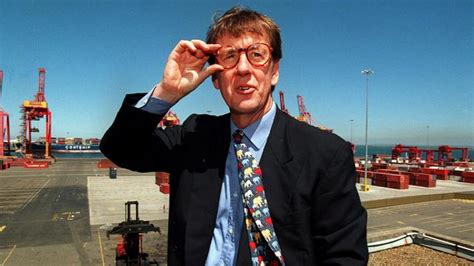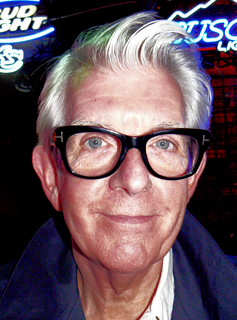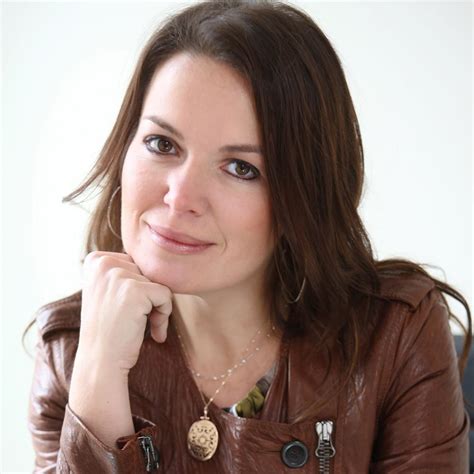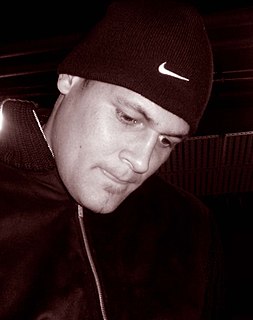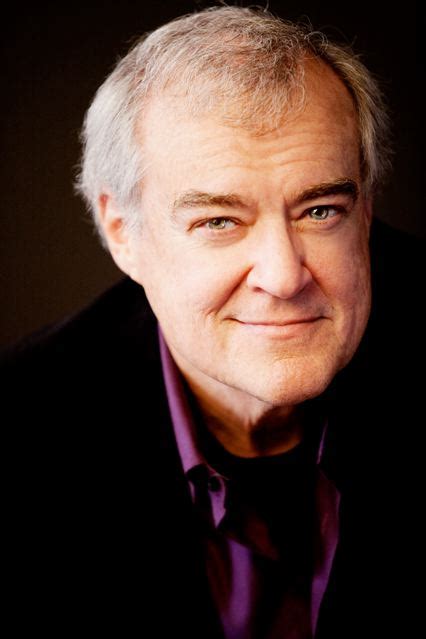Top 709 CEO Quotes & Sayings - Page 12
Explore popular CEO quotes.
Last updated on April 15, 2025.
We'll have a national dispute - debate about it, and the goal should be to bring in - to help respectfully appeal to those voters that can make the difference, the ones who are not going to be entrepreneurs, are never going to be - run a - be a CEO in some big business, and they know it, but they would like to have their Social Security, they would like to have Medicare as they paid for all their years, and they'd like rising wages rather than falling wages.
When I first met YouTube CEO Susan Wojcicki, I was moderating a panel she was on for Harvard alums. We were both wrapping up our maternity leaves. She had just had her fifth child; I'd just had my second. We traded tips on maternity clothes, and I peppered her with questions about how she finds her balance.
I always took my role as a leader, and certainly chairman and CEO of a major company very seriously as to our employees and trying to create opportunities for them and create opportunities where they could even, as I said many times, could realize their God-given potential and maybe realize more potential than even they realize they had.
How can you feel like an actual member of society casting a vote for a president when in a professional interview you said that farts make you laugh? And you're a professional in comedy? But then, have you ever seen a video of a small dog that farts? Welp. I don't need to explain that anymore. If you can't see the humor in that, good luck being a CEO somewhere where I'm not going to understand you. It's a harmless thing to laugh at. It's humor that's not at the expense of someone else. And it's silly. It's juvenile.
Strangely, from a life-change standpoint, I sold the company I was running and got divorced in the same month. And so there I was, at home, and I'm not the CEO. I took a few months thinking about what I wanted to do. When the first call came in about running a company owned by Deutsche Telekom, I thought it was laughable and really not something I'd do. I took the meeting mainly because the headhunter I knew. At first I thought I was just helping her fill out the roster, but then I dug into it.
I say, 'Get me some poets as managers.' Poets are our original systems thinkers. They contemplate the world in which we live and feel obligated to interpret, and give expression to it in a way that makes the reader understand how that world runs. Poets, those unheralded systems thinkers, are our true digital thinkers. It is from their midst that I believe we will draw tomorrow's new business leaders." --Sidney Harman, CEO Multimillionaire of a stereo components company
Don Keough's (CEO Coca-Cola) 11 Rules on "HOW TO LOSE": 1. Stop taking risks 2. Be content 3. Never deviate from what the founder did 4. Be inflexible 5. Rely totally on research and experts 6. Concentrate on competitors instead of your customers 7. Put yourself - not the customer - first 8. Solve administrative concerns first 9. Let others do your thinking for example, headquarters 10. Rely on T-G-E: "That's Good Enough" and T-N-M-J: "That's Not My Job!" 11. Rationalize slow growth
When I was a Senator from New York, I represented and worked with so many talented principled people who made their living in finance. But even thought I represented them and did all I could to make sure they continued to prosper, I called for closing the carried interest loophole and addressing skyrocketing CEO pay. I also was calling in '06, '07 for doing something about the mortgage crisis, because I saw every day from Wall Street literally to main streets across New York how a well-functioning financial system is essential.
If your father is an air-conditioner repairman from Nebraska, its conceivable that you might become a CEO, but you can't imagine being the drama critic for the New York Times. So if you come from a background like that and you want to actually have a career which involves doing something noble in the world, what can you do? You can join the army. That's about it. Or you can work for the church. That explains a lot of the focus of right-wing populism. The right wing figured that out, that people want enough to survive and to do good.
"St. Lucia We Love" is actually a song produced by Stratosphere music (also St. Lucian). The CEO of Stratosphere music approached me and wanted me to produce a music video for this song which was already a hit in my country. I felt privileged to have been chosen to do such a video. So every time I went out to shoot a scene from the video, I would get a still shot from the scene to tease the public. The photo of the amazona versicolor is is an actual scene from the video which was released on St. Lucia's Independence day (22nd February, 2013).
You want a woman who, if needed, will be the CEO of the home. In essence, you want a woman who understands the difference between ambition and busyness. You also want a woman who understands that submission is strength, not weakness. Meaning, she understands the importance of your leadership but she is also strong enough not to allow you to run over her.
Depending on the day or even the hour, productivity can take very low dips. At times, I may feel like throwing in the towel. I love being inspired by amazing women who have achieved great things. When I have a setback, I will spend 15 minutes reading quotes from strong women or reading or watching an interview with a woman I admire (a gold medalist or a CEO). This gets me back in the right mindset to tackle any challenge.
I'm finding that people reading the book [The Heroin Diaries: A Year In The Life Of A Shattered Rock Star] are saying, "You came from one background, I came from this background - you were a rock star, I was a CEO. I didn't have a heroin/coke problem, but I had a pill problem. But I also fell from grace, didn't know how to get recovery, and I am now in recovery." People tell me that their kids read it and told them they'll never do drugs - "This book really shows me where it goes."
Why is McDonalds still counting? How insecure is this company? 40 million, 80 billion million jillion killion tillion... who cares? Is anyone really impressed by that any more? Ooh, 89 billion sold? All right, I'll have one! I'm satisfied! I'd like to tell the CEO of McDonalds, "Look. We all get it, okay? You've sold a lot of hamburgers. Whatever the number is, just put up a sign, 'McDonalds: We're Doing Very Well.' We are tired of hearing about every goddamn one of them."
Environmentally, business in America in 1970 was very similar to business in China today. Even if a CEO wanted to be a responsible corporate citizen, he (and they were all "he's" then) simply couldn't invest a billion dollars in pollution controls to produce a product that was indistinguishable from those of his competitors. His products would be priced out of the market. Passing laws that created a clean, level playing field for whole industries had to be a core focus of the 1970s.
I'm not shy about stating my opinion on political issues, so I can state my opinion, which is, on this one, Premier Notley's right. Because cap and trade systems have not been shown to work. And if you want to price carbon, then I would listen to the CEO of Suncor, who suggests a clean, transparent carbon tax makes a bunch more sense than a cap and trade system that just creates jobs for traders. I - I kind of agree with that.
The Problem is: many terrific women have made themselves overqualified for the job of wife, because many men are looking for a woman with 'receptionist-level wife skills', not 'CEO-level wife skills'. Meaning: If a woman doesn't hang on a man's every word, is too independent, challenges his leadership, wants to create her own hours, demands emotional raises, then there won't be as many openings for the kind of wife position she is seeking. One of the big problems with marriages in the nineties: no room for two husbands.
I want to share that I had and still do, and a great relationship with Angela Ahrendts. She was the CEO of Burberry. One of the things that I saw her do at Burberry was that every person she screened for a job, they had to go through the trust test. Do they understand what trust even means. Do they consider it in their life. If people didn't pass that part of the test, they didn't get into Burberry, because she wanted a team. It was extraordinary to be with her, because she brought them to the height of their best behaviors, including trust, which is the most important thing here.
The Obama administration asked General Motors CEO Rick Wagoner to step down, and he agreed. This is good news for Obama; the last time he tried to get someone to quit, it took months -- and even then, he had to promise her a job as secretary of state. ... According to the government, Rick Wagoner was forced to resign because of poor performance. That's embarrassing -- run an organization that loses billions of dollars and then get fired by a guy who heads up an organization that loses trillions of dollars.
Now my mom designs to resign so she runs for US senate, and now at 67 my mom just launched a new company called Women's Leadership Live, she is the cofounder and CEO, and it's all about empowering women to be successful in business however they define success. When you have a role model like that you really don't ever look at gender as an issue and it's about owning your place and taking charge of your role, regardless of what you look like.
I think the most important CEO task is defining the course that the business will take over the next five or so years. You have to have the ability to see what the business environment might be like a long way out, not just over the coming months. You need to be able to both set a broad direction, and also to take particular decisions along the way that make that broad direction unfold correctly.
And as Craig Brown - he's an English humorist, not a comedian but he's just a writer and humorist - I'm quite a fan of. I heard him talking in a rather similar way on the radio. He said I'm the sort of person - I can't remember exactly what he said, but it was rather interesting - he said I'm the sort of person that can be reduced to tears in an empty church and feel like I'm the CEO of the Devil's organization in a full one, and I tend to feel like that as well. I love empty churches and going into them looking around, but I'm not a churchgoer at all.
Now the guy that got to the top, the CEO, would obviously be stupid to have a number two guy who was a lot smarter than he is. So by definition, since he's a survivor and he got to the top and he isn't that brilliant, his number two guy is going to always be a little worse than he is. So, as time goes on, it's anti-Darwinism, the survival of the un- fittest.
If I'm a CEO and I say, 'Misogyny will not be tolerated', that's a more powerful statement than 'It is my sincere hope and our intention to eradicate misogyny from this company'. Sometimes saying things in that more categorical form, has a real function. Although, if you dig beneath it, it is actually one of J.L. Austin's illocutionary acts; you're trying to make something happen rather than describing something already happened. The fact that it has the grammatical form of a description is fine.
In five days, you can turn the page on policies that put greed and irresponsibility on Wall Street before the hard work and sacrifice of folks on Main Street. In five days, you can choose policies that invest in our middle class, and create new jobs, and grow this economy, so that everyone has a chance to succeed, not just the CEO, but the secretary and janitor, not just the factory owner, but the men and women on the factory floor.
The current CEO of Wal-Mart says he has "no choice" but to sacrifice the welfare of his employees in order to serve his customers' need for low prices. So, why are they paying the guy millions a year if there is no possibility for him to change things? I think he is either kidding us or himself. The truth is more likely that he likes things the way they are, or he lacks the strategic imagination to come up with a viable and profitable ways to change them. If either is true, he is overpaid and probably not up to doing the job.
I don't hold myself out as a role model. I don't believe that everyone should make the same choices; that everyone has to want to be a CEO, or everyone should want to be a work-at-home mother. I want everyone to be able to choose. But I want us to be able to choose unencumbered by gender choosing for us.
To fix the business, to bring it back to health, you must assimilate enough of the disruptive innovation to modernize the operating model without jettisoning your business model. This typically requires new leaders and definitely requires new (if temporary) rules. The CEO is the only person who can dictate the correct terms in a timely manner and maintain the enterprise's commitment to those terms for the duration of the rehabilitation effort.
I was specifically referring to the regular everyday people that you come across on your come up. You never know if that intern that you disrespected might end up being the CEO of the company one day, you honestly never know who's who. It's easy to treat the stars and the executives with respect but how do you treat the security guards or the waiter that serves your food? You may have to cross that bridge later.
Aristotle turns out to be an extremely practical guide for those asking such personally profound questions, like: What should I do next to find meaning and fulfillment in the next stage of my life?. He offers timeless advice to business people who want to be successful both at work and in their private lives. For example, he shows how business leaders can create successful organizations and, at the same time, behave ethically. Come to think of it, the CEO of Wal-Mart should study Aristotle!
The reason to go public is that it is a massive branding, marketing, credibility, trust-building exercise with your customers, and then it allows you to consolidate power and scale and market share. Do we want to be a huge company with a huge impact? If the answer to that is yes, the only way that that happens is by going public. It is effectively a branding event that catalyzes interest. It helps with recruiting, it helps with marketing, it helps with sales. It just helps on many dimensions. I think it's basically a litmus test for the CEO's ambition.
It is all of our jobs to make sure that women's rights are human rights, and that they do have a place at the table, and we all push toward equality. The leadership numbers for women in business really haven't changed since I began as CEO. There are only 21 female CEOs at Fortune 500 companies, there is only 17 to 19 percent of female representatives in Congress, there are only eight female governors.
The CEO of Enron, Jeffrey Skilling, married one of the Enron secretaries this week. It's amazing how romantic these Enron guys can be when they realize that wives can't be forced to testify against their husbands. Skilling said today she was the best secretary Enron had ever had. She could shred 950 words a minute. ... I guess they are on their honeymoon right now. That's going pretty well. Hey, he's used to screwing Enron employees.
In many ways, Apple CEO Tim Cook has been saying that and more for many years. He's said you don't have to choose between doing good and doing well. But only a few dozen people were lined up outside the Apple Store in San Francisco. That's nothing compared to the hundreds and thousands that line up for new products. Cook is taking a gamble here.
This kind of inequality - a level that we haven’t seen since the Great Depression - hurts us all. When middle-class families can no longer afford to buy the goods and services that businesses are selling...it drags down the entire economy from top to bottom. America was built on the idea of broad-based prosperity... That’s why a CEO like Henry Ford made it his mission to pay his workers enough so that they could buy the cars he made. It’s also why a recent study showed that countries with less inequality tend to have stronger and steadier economic growth over the long run.
It's a bit disappointing when board members who don't know a thing about football are making decisions on your career. When you look at it you've got coaches, senior players and CEO's who wanted me but then it gets to a board meeting and you've got fat businessmen who are making the decision on your career. It was frustrating and it made me a bit angry.
The key thing for a CEO to keep their head in the game is recognize that there's turbulent times, plan for, you know, bad luck as well as good luck, keep people focused on what the key, you know, business wins are, and you know, provide the energy that people always need in order to, you know, to go into battle because, you know, work is hard and go into work and do that well. And provide a good leadership beacon for that. In other words, it's the same thing that makes good leadership in any other time.
The economic system that the United States has is an evil empire. It's an economic system that's not fair, not just, and it's not democratic. And it will fall just like communism fell. The richest 1 percent now own 50 percent of the wealth. It didn't use to be that way. The average CEO 20 years ago made 20 times as much as the average employee. Now they make 212 times as much.
There are three things you need to do as a CEO-founder. Think strategically, drive design, and drive technology. Some people who are really good at one can build a pretty foundational company. Most people who are very successful are good at two. But Jack is the only person in the Valley I've met who's all three. He's a first-rate strategist, a first-rate designer, and a first-rate technologist.
The problem is simply this: no one can feel like CEO of his or her life in the presence of the people who toilet trained her and spanked him when he was naughty. We may have become Masters of the Universe, accustomed to giving life and taking it away, casually ordering people into battle or out of their jobs . . . and yet we may still dirty our diapers at the sound of our mommy's whimper or our daddy's growl.
Ed Woolard, his mentor on the Apple board, pressed Jobs for more than two years to drop the interim in front of his CEO title. Not only was Jobs refusing to commit himself, but he was baffling everyone by taking only $1 a year in pay and no stock options. I make 50 cents for showing up, he liked to joke, and the other 50 cents is based on performance.
You see the kind of approach, because he [Doanld Trump] is a businessman. He's like, I'm going to pick up the phone, I'm gonna call that CEO and we're going to talk about this directly, instead of getting mired in a lot of the way down, you know, bureaucracy and red tape and having 25 assistants or deputies talk to somebody instead of going directly to the root of the problem.
Why are CEO's who slash jobs so proud of themselves? Instead of bragging about 'cutting fat,' they ought to be getting up before their employees and saying, We did such a lousy job of planning and hiring that we have more people than work. And we are so broke and so dim-witted that we can't come up with any way to get more work. So our only solution is to send a lot of good people home. I am ashamed and I am sorry.
But at some point, you know that - you know what poem keeps going through my mind is, "first they came for the Jews." People, all of us, are like, "Well, this news doesn't really affect me." "Well, I'm not a bondholder." "Well, I'm not in the banking industry." "Well, I'm not a big CEO." "Well, I'm not on Wall Street." "Well, I'm not a car dealer." "I'm not an auto worker." Gang, at some point, they're going to come for you!
I like to take CEOs into consumers' homes to see the "real world." CEOs have privileged lives with big incomes, lots of help, access to just about anything they wish. The average consumer lives on $53,000 a year and has daily tradeoffs and compromises that must be made. I took a CEO into a trailer park so he could observe first-hand - and understand - how consumers use his product.
Motorcycle manufacturer Harley-Davidson is a prime example of an American company that uses employment conditions to boost productivity. Current CEO James Ziemer - who started with the company while in high school has negotiated imaginative contracts with the unions representing Harley's workers, agreeing to keep production in the U.S. in exchange for constantly reducing total labor costs through automating tasks and changing work rules. Because Harley regularly reassigns workers whose tasks have been automated to other parts of the company.



